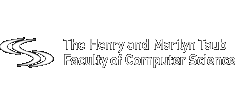Teaching
Deep learning has rapidly become a de facto standard for many AI tasks in numerous market segments on platforms ranging from mobile devices to supercomputers. The course will focus on basic notions in deep learning, deep network architectures, training regimes and algorithms, concepts of hardware accelerators, and a lot of hands-on coding.
Digital imaging and image processing has become an inseparable part of our reality, profoundly impacting our social communication skills. The purpose of this course is a self-contained introduction to modern techniques in image processing. We will understand concepts involved in acquiring, sampling, representing, compressing, and processing of multi-dimensional signals (images and videos). We will discuss the notion of inverse problems and ways to solve them — from traditional prior-based methods to modern learning-based methods. Finally, apart from the standard image acquisition model, we will also look at more exotic computational and medical imaging schemes and understand the challenges and applications involved therewithin.
The goal of this course is to deepen the knowledge and understanding of specific topics in Computer Vision and increase students’ proficiency in utilizing Computer Vison tools. The projects are designed to include research components including writing a project proposal, conducting a literature review, designing and defining benchmark tests, and writing a summary report. Each team will conduct a bi-weekly meeting with the course staff. In these meetings the team will report on their progress and present the obstacles and problems encountered. Guided by the course staff, the team will plan their next steps and short term goals.
See “details” for enrollment and additional details.




